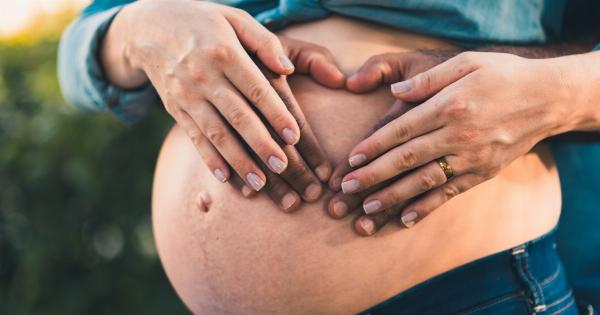When you are eagerly trying to conceive, it can feel like every little twinge or change in your body holds the potential of being a sign of pregnancy.
While it’s important to remember that the only way to confirm whether you are pregnant or not is by taking a pregnancy test, there are some early signs and symptoms that may give you an indication of conception. These signs vary from woman to woman and are often subtle, but they can provide some clues while you wait to take the test. Let’s explore some of the common signs of conception before taking the test.
1. Missed Period
One of the most well-known signs of pregnancy is a missed period. If your menstrual cycle is regular and you find yourself unexpectedly late, it might be a good time to take a pregnancy test.
However, do keep in mind that there can be other reasons for a missed period, such as stress or hormonal imbalances.
2. Breast Changes
Many women experience breast changes in early pregnancy. They might feel more tender, sore, or swollen than usual. Your breasts may also become more sensitive to touch, and the areolas may darken.
If you notice these changes along with a missed period, it’s worth considering a pregnancy test.
3. Fatigue
Feeling more tired than usual can be a sign that your body is working hard to support early pregnancy. Fatigue is a common symptom experienced by many women during the first trimester.
If you’re suddenly finding it difficult to stay awake or constantly feel drained, it could be an indication that you’ve conceived.
4. Nausea and Morning Sickness
Morning sickness, which can strike at any time of the day, is a classic sign of pregnancy. It can range from mild queasiness to persistent vomiting.
If you find yourself feeling nauseous without any apparent cause, particularly when combined with other symptoms, it might be time to take a pregnancy test.
5. Increased Urination
During pregnancy, your body produces more blood which leads to increased blood flow to your kidneys. This can result in more frequent trips to the bathroom.
If you notice that you’re urinating more frequently than usual, it could be a sign of pregnancy.
6. Changes in Appetite
Some women experience changes in their appetite during early pregnancy. You might find yourself craving certain foods or experiencing aversions to others.
If you notice sudden shifts in your food preferences or eating habits, it could be a sign that you’ve conceived.
7. Mood Swings
Hormonal changes in pregnancy can cause mood swings, making you feel more emotional or irritable than usual. If you find yourself experiencing heightened emotions or frequent mood swings, it could be a sign of conception.
8. Heightened Sense of Smell
Pregnancy hormones can heighten your sense of smell, making you more sensitive to certain odors. If certain scents suddenly seem overpowering or particularly unpleasant, it might be worth considering a pregnancy test.
9. Light Spotting or Cramping
Some women experience light spotting or cramping when the embryo implants itself in the uterine lining. This is often known as implantation bleeding and can occur around the time a period would be due.
If you notice light spotting or cramping along with other symptoms, it may be an indication of conception.
10. Intuition
Lastly, sometimes a woman just has a gut feeling that she is pregnant. Perhaps you’ve been actively trying to conceive or you simply feel different in a way that’s difficult to explain.
Trusting your intuition can be a powerful indicator, although it’s important to remember that it’s not always accurate.
Remember, while these signs may point towards conception, they are not definitive proof of pregnancy.
The only way to confirm whether you are pregnant is by taking a pregnancy test, which detects the presence of the pregnancy hormone hCG in your urine or blood.
If you suspect you might be pregnant, it’s important to take a home pregnancy test or consult with your healthcare provider for further guidance. They can provide accurate information and support throughout your journey to motherhood.
























